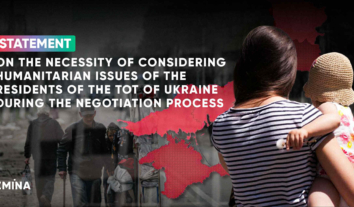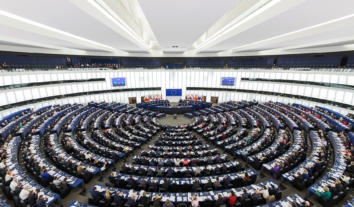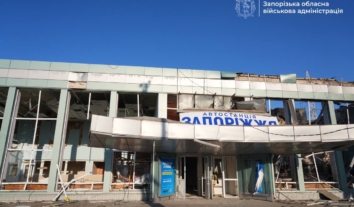From hospitals to prisons: 2022 report of Ukrainian Ombudsperson paints grim picture of human rights in custodial settings of Ukraine
Ukrainian Parliament Commissioner for Human Rights published the Special Report on the State of Implementation of the National Preventive Mechanism (NPM) for the Year 2022. It underscores grave human rights challenges, citing the extensive destruction of facilities during Russia’s full-scale invasion in 2022 and revealing systemic issues in detention conditions, healthcare, and social rights.
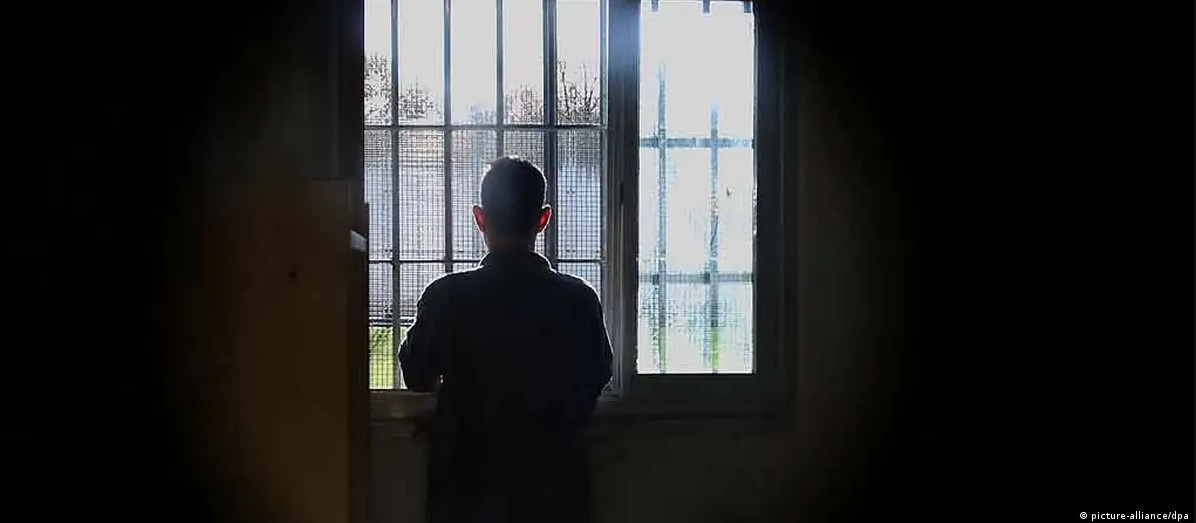
In 2022, monitoring visits revealed the destruction and damage to various facilities during the full-scale invasion of Ukraine by the Russian Federation. This included 109 court premises, 20 State Criminal Enforcement Service institutions, 19 psychiatric healthcare institutions, 12 social protection institutions, and four temporary detention centres.
According to the Ombudsperson’s report, de facto authorities forcibly transferred individuals from these facilities to Russia or temporarily occupied Crimea. Such actions could be considered a crime against humanity under Article 7 of the Rome Statute. Most detention facilities in Donetsk and Luhansk were not prepared for evacuation due to a lack of clear instructions, evacuation plans, or civil protection facilities. These facilities were also generally unprepared to address the challenges of the war.
In their 2022 monitoring visits, NPM staff assessed compliance with mandatory detention procedures. These procedures included drawing up protocols, informing detainees of their rights, and meeting deadlines. Additionally, NPM volunteers identified gaps in the actions of police responsible for detainees in National Police territorial units.
The Ombudsman’s report highlighted several key concerns, including the implementation of Order No. 311 of the Ministry of Internal Affairs as of May 24, 2022, which addresses maintenance of the Custody Records information subsystem by the National Police of Ukraine. NPM staff also revealed ongoing instances of torture and cruel, inhuman, and degrading treatment, as well as legislative gaps that enable police misconduct.
The report also addresses the observance of key rights, including access to free legal aid, health protection and medical assistance, and the right to appropriate detention conditions, particularly in temporary detention facilities.
Carried out by the NPM, visits to 21 courts showed that almost all of them exhibited non-compliance with international and national standards, potentially constituting a violation of Article 3 of the European Convention on Human Rights (“prohibition of torture”).
A range of issues related to the rights of people with limited mobility and lack of premises for confidential communication with a lawyer and special rooms for participants in judicial proceedings were outlined. NPM members prepared the relevant recommendations for the State Judicial Administration of Ukraine.
The results of the NPM monitoring in 2022 reveal inadequate detention conditions in penitentiary institutions such as:
- Non-compliance with rules for physical space for the accommodation of convicts and detainees;
- Violation of the requirements of Article 8 of the Law of Ukraine On Pre-Trial Detention, requiring the separate detention of detainees and convicts;
- Violation of the right to free legal aid;
- Violation of the right to information for foreign detainees and convicts;
- Non-compliance with the fire safety and occupational health and safety rules.
Furthermore, there were:
- The systematic denial of adequate medical care for detainees and convicts with psychiatric and mental disorders;
- The denial of the right to select treatment methods;
- Non-compliance with infection control and epidemiological surveillance of tuberculosis;
- Violations of the rights of HIV-infected persons.
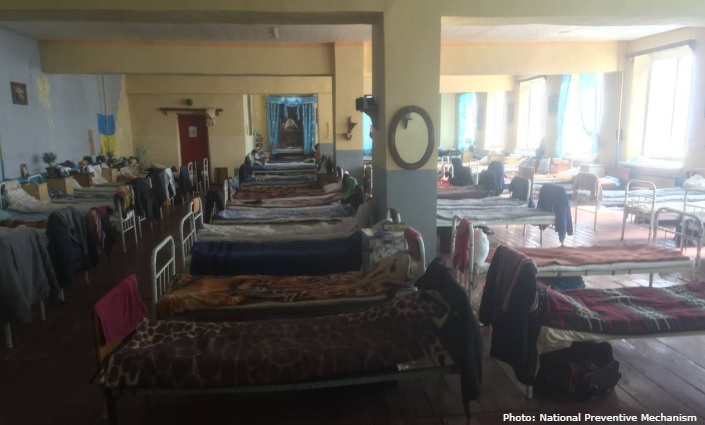 One of the barracks of the correctional colony in Rivne Oblast
One of the barracks of the correctional colony in Rivne OblastAmong the challenging issues raised by the NPM regarding the visits is the observance of labour and social rights of convicts and detainees. Under martial law, evacuated convicts and detainees did not receive social payments nor wages accrued in custodial settings.
According to the Ombudsman, the ongoing war by Russia against Ukraine created more challenges and risks, especially for those penal institutions located in the war zone.
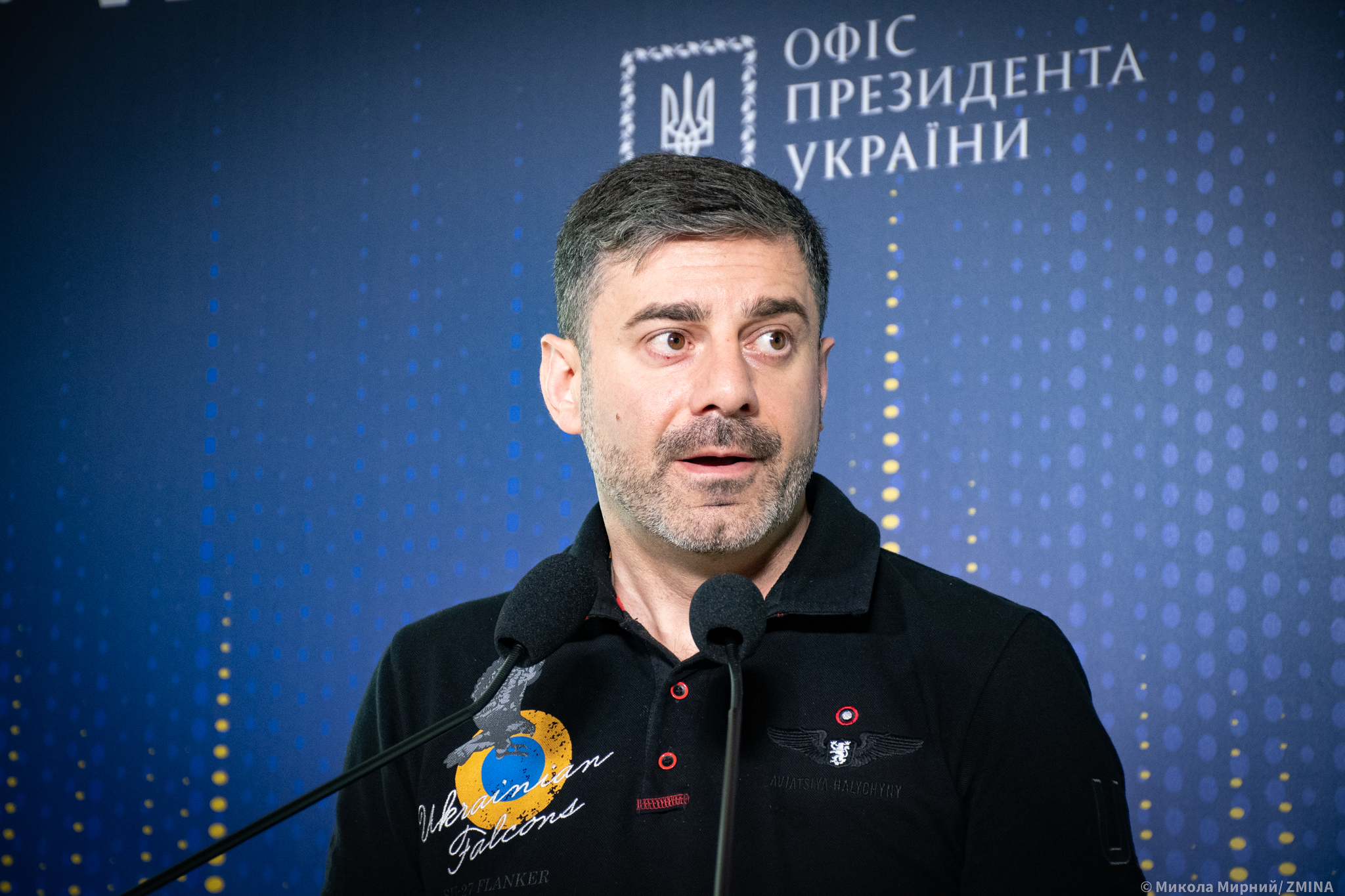 Dmytro Lubinets
Dmytro LubinetsNPM staff monitored custodial settings under the control of the Ministry of Health of Ukraine in 2022. They enumerated the outcomes of visits, during which violations of the rights of patients of the psychiatric care institutions have been found, in particular:
- Infringement of a person’s dignity when using physical restraint in the presence of other patients;
- Illegal use of home-made straps;
- Lack of proper documentation of cases of physical restraint use;
- Inappropriate use of shock electroconvulsive therapy;
- Inappropriate physical examination during hospitalisation;
- Inadequate recording of injuries and investigation during inpatient treatment, which violates the right of patients to decent treatment and protection from mistreatment by personnel.
According to the Ombudsman Dmytro Lubinets, the current military circumstances and consequent challenges to the healthcare system confirmed the need for further reforms of forensic psychiatry, as the persons placed in the medical institutions by a court decision are the most vulnerable ones and the state must ensure their rights.
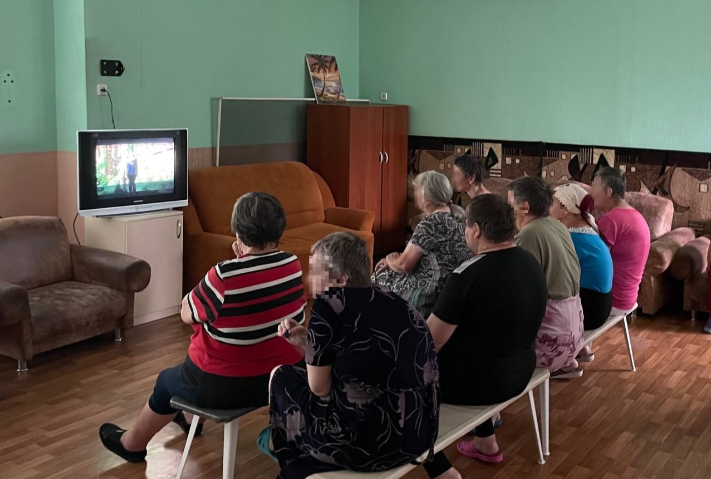 Residents of a psycho-neurological institution in the Dnipropetrovsk Oblast
Residents of a psycho-neurological institution in the Dnipropetrovsk OblastAdditionally, the report highlights a range of violations of the rights of mentally incapable persons. In 2022, the number of rulings on the restoration of legal capacity was almost 80 times less than rulings on the deprivation of legal capacity. The report recommends that a more effective mechanism be implemented to realise the rights of people with disabilities, addressing the prevailing practices of deprivation of legal capacity, particularly in psychiatric institutions.
NPM staff also detected in facilities under the control of the Ministry of Social Policy:
- use of physical restraints, restriction of movement, and isolation as punishment;
- limitation of freedom of movement outside the residential institutions where it should not be limited;
- restrictions on hairstyle, clothes, etc;
- inadequate living conditions and lack of accessibility, including a lack of ramps and lifts, call buttons and access to drinking water;
- failure to inform residents of their rights and to facilitate the exercise of their rights;
- improper provision of medical care and rehabilitation.
The recommendations given by the Ombudsman are primarily focused on the need to transition to alternative forms of social services for elderly and disabled persons through the creation of houses or apartments for supported living. He also recommended developing a network of small group homes for children and persons with disabilities.
The report also assesses the implementation of recommendations made by the Ombudsman based on 2021 NPM visits. He emphasizes that implementing the 2021 recommendations was hindered by the Russian Federation’s war against Ukraine. Due to active hostilities, people from custodial settings in combat zones were relocated to safer locations, leading to overcrowding in the facilities to which they were moved.
Overall, 8% of the Ombudsman’s recommendations presented in the report were fully fulfilled, 62% were being implemented, and 30% were not fulfilled. The majority of them required more financial resources. The lack of funding was caused in part by the adoption of the resolution of the Cabinet of Ministers of Ukraine as of June 9th, 2021, No. 590, On Approval of the Procedure for the Exercise of Powers by the State Treasury Service in a Special Regime under the Martial Law.
By way of background, the National Preventive Mechanism is an independent body in Ukraine established and operating in accordance with the Optional Protocol to the UN Convention against Torture and other cruel, inhuman or degrading treatment or punishment. It provides for regular monitoring of all places of deprivation of liberty to prevent the cruel treatment of people being held.
In Ukraine, the NPM has been operating since 2012 in the “Ombudsman+” format, which involves visits to custodial settings by the Ombudsman’s Office staff and non-government monitors.
Previously, ZMINA reported that from the beginning of the full-scale invasion of the Russian Federation until November 2023, NPM officials, together with non-government monitors throughout the country, carried out 615 visits to places of deprivation of freedom. To remediate the identified violations of fundamental human and civil rights, the Ombudsman submitted 116 submissions to the central executive bodies, other state bodies and local self-government bodies.

